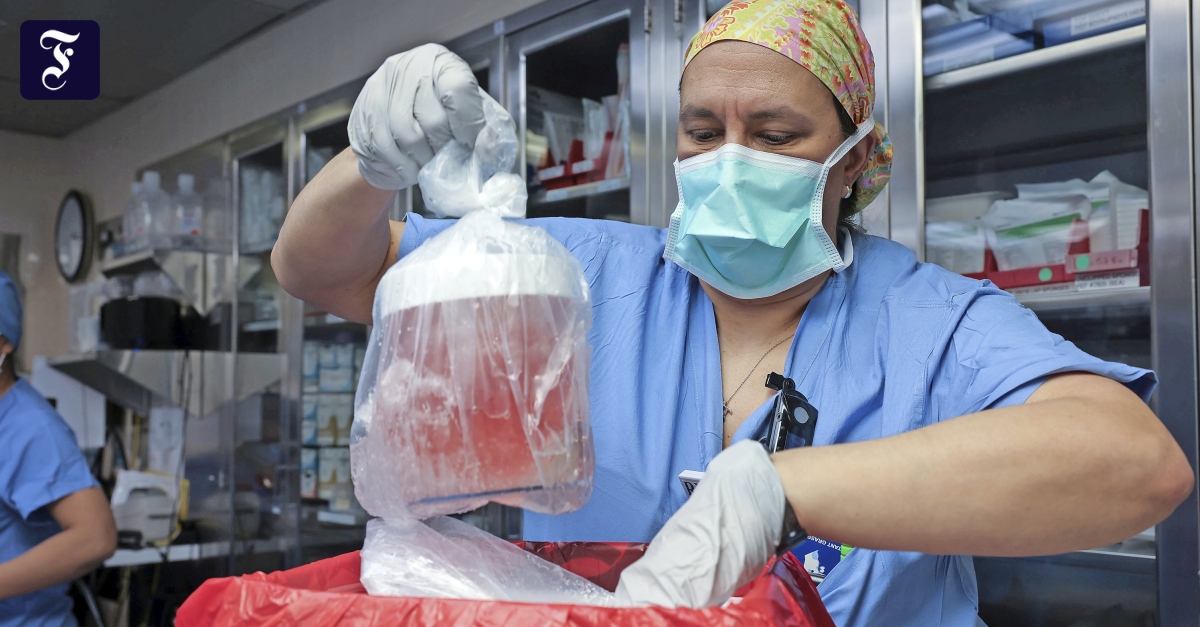In the American state of Massachusetts, a pig kidney has been successfully inserted into a human as a replacement organ for the first time. The man, who suffers from life-threatening kidney disease, had the genetically modified organ implanted on Saturday, the Massachusetts General Hospital (MGH) in Boston announced on Thursday. The operation lasted four hours, the patient is recovering well and will probably be discharged soon.
“The success of this transplant is the culmination of the efforts of thousands of scientists and doctors over several decades,” said surgeon Tatsuo Kawai, according to the clinic. He hopes that this transplant approach can be “a lifeline” for millions of patients around the world. Joren C. Madsen, the director of the MGH Transplant Center, described the 62-year-old patient Richard Slayman as the “true hero”: The success of this operation would not have been possible “without his courage.”
Patient wants to “give hope to thousands of people”
Slayman himself said of the operation: “I saw it not only as a way to help myself, but to give hope to the thousands of people who need a transplant to survive.” Slayman suffers from type 2 diabetes and high blood pressure and had In 2018, after seven years on dialysis, a human donor kidney was transplanted, which no longer functioned properly after five years. Because of this, he had to go back on dialysis and go to the hospital every two weeks for clot removal and surgical procedures.
The first successful kidney transplant with a human replacement organ was also performed in Boston in 1954. The surgeon Joseph Murray received the Nobel Prize for Medicine in 1990.
The transplantation of animal tissues and organs, xenotransplantation, has been researched since the 1980s. Pigs are particularly suitable as donors because their metabolism is similar to that of humans. In order for a transplant to be possible, the genetic makeup of the donor animals must, among other things, be changed. Without genetic adaptation, transmission to humans would result in severe rejection reactions.
Published/Updated: Recommendations: 8 Hinnerk Feldwisch-Drentrup Published/Updated: , Recommendations: 2 A comment from Susanne Kusicke Published/Updated: , Recommendations: 13
Most recently, two patients at the University Hospital in Baltimore (Maryland) had pig hearts implanted as replacement organs in recent years. However, both had died just weeks after the operation. Similar interventions are also planned in Germany.
